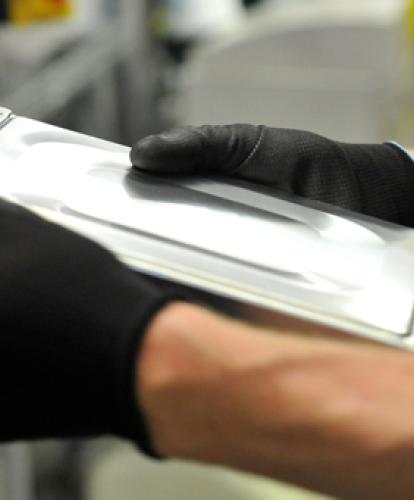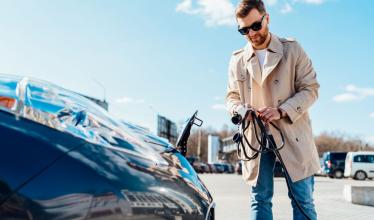Hot on the heels of Renault’s announcement, Nissan has also revealed that it has entered into a partnership to reuse batteries from its EVs. In an effort to make its cars as environmentally friendly as possible, Nissan has joined forces with power management specialists Eaton to create energy storage and control systems.
The lithium-ion batteries that are no longer considered suitable for use in the Nissan EV range will be handed over to Eaton to give the cells a second life. In EVs, batteries that drop to around 70 per cent of their original capacity are deemed unsuitable to power an electric car. The batteries are far from useless though and, in the same manner that Renault announced last week, they will be converted to do carry out a different role.
The first battery to be converted came from a Nissan Leaf and will now be used as part of an uninterruptable power supply unit developed by Eaton which combines the battery with a solar photovoltayic cell. This allows users to have continuous power as a stand-alone system, without needing a sonnection to the national grid – though it can be connected if needs be. These sorts of systems are used in traffic signage, emergency lighting systems and can be used by those in remote areas as back-up power supplies.
Robert Lujan, Electric Vehicle Director, Nissan Global, said: “The batteries as power storage units far outlast the typical life of a car. In order to bring a commercially viable solution to the market, it requires not only the battery expertise of Nissan, but also the experience in power management, control and integration that Eaton offers. This partnership is the first step in delivering a real world system for our customers in the near future.
“Having produced our own batteries, at our leading manufacturing sites worldwide, for many years; we will now be able to expand the life of our automotive batteries therefore reducing the need to use additional resources from the planet to produce new batteries.”
Cyrille Brisson, Vice President Marketing, Eaton Electrical EMEA, said: “These systems will really facilitate the wider adoption and deployment of renewable generation; giving people greater control over their energy supply and consumption.
“The wide-ranging benefits of such a unit include continuity of supply, increased grid stability and efficiency, avoidance of peak energy tariffs and a reduction in the reliance on expensive fuels like diesel to compensate for no-grid or poor-grid situations.”
Tesla has been developing its Powerwall to perform a similar function, where a large capacity battery can even out the power drain that a household or electric car has on the national grid. Nissan’s partnership with Eaton could potentially see something similar be made available, though with recycled EV batteries used as the storage solution.
The partnership was announced during the Nissan-Renault Alliance’s work during the COP21 climate change conference in Paris, where the two leading EV companies have supplied a fleet of 200 vehicles to shuttle delegates around the city in.



